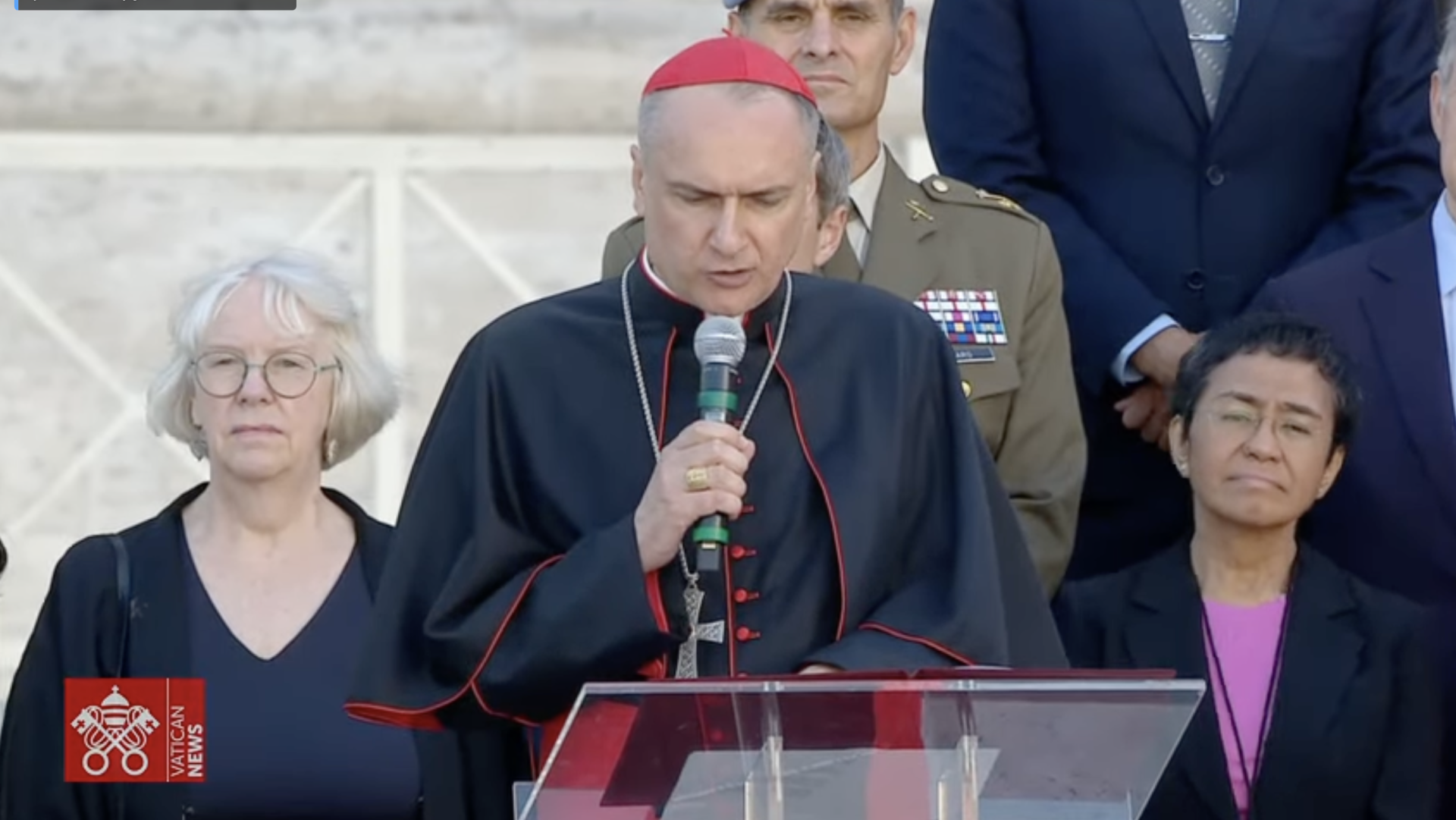Nobel Peace Prize laureate and Rappler CEO Maria Ressa expressed her admiration for the inclusive nature of the International Meeting on Human Fraternity that was held in Rome last week.
Ressa was one of the 30 Nobel Peace Prize laureates who drafted the “Declaration on Human Fraternity,” which was presented at the event and signed by Cardinal Pietro Parolin, Vatican secretary of state.
“So, my hope for this declaration is that it’s a first step forward. It acknowledges what we all have in common – our hopes, our dreams, what we all have done wrong. It acknowledges that we’re not in it alone,” Ressa said.
The declaration stresses the importance of fostering fraternity as the fundamental basis for a harmonious global society. It underscores key principles such as respect, dignity, fair remuneration, education, healthcare, diversity, justice, and community support.
The document advocates for reconciliation through dialogue and renounces conflict and violence.
Ressa said the international meeting was a departure from traditional policy-focused discussions, as participants touched upon deeply human aspects such as compassion, faith, and love.
“That was new for me… And it wasn’t about one faith, it was about faith in humanity, a belief in values. And I think that’s what I love about it. It was holistic. It made me realize that we look at things too fragmented like we create false boxes that we fit in,” said Ressa.
Ressa said while some organizations exploit people’s search for faith, the Catholic Church, with has provided a unifying force for many.
However, Ressa noted that like any powerful institution, the Church faces challenges in adapting to the rapid pace of change.
“There’s a technology that has pushed the pace of change to – it’s not human anymore, so the challenge for the Vatican, is to use its huge great power, its values, faith, which we all need, and move it to where the present moment of the past to where we are, where young people are, where people are, and understand what we need and why we need it,” she said.
Ressa raised concerns about the way lies are rewarded in the current technological landscape. She pointed out that falsehoods can spread six times faster than facts, which contradicts basic moral principles such as honesty.
She called for a return to fundamental values and stressed the need to address this cascading failure by promoting truthfulness in all aspects of life.
“That’s a cascading failure, so I think the challenge is to go back to our values, and actually for me in the meeting held yesterday, it’s very simple, thou shalt not lie!” said Ressa. – with reports from Rodne Galicha/Oeconomedia







